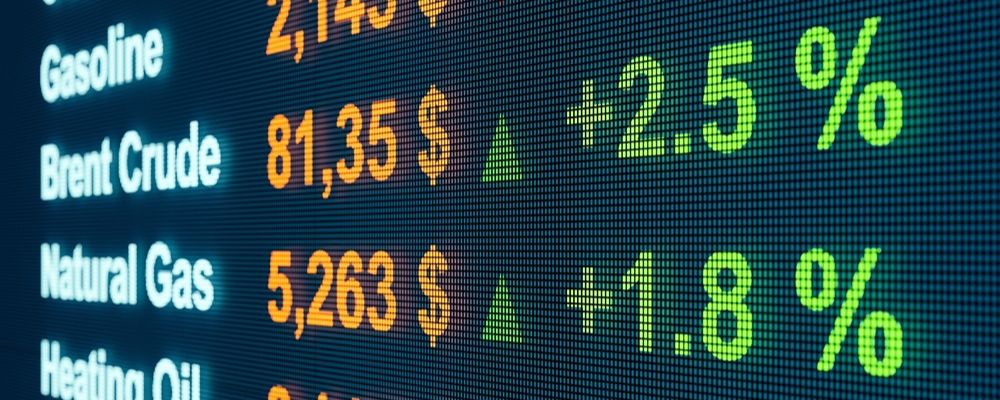
What Is A Commodity Broker?
Commodities brokers are intermediaries who facilitate trades in commodity markets. They offer access to a range of financial products such as futures, options, financial spread betting, and ETFs that allow traders and investors to speculate on the price movements of commodities like gold, oil, and corn. Commodities brokers play a vital role in enabling market participants to manage their risk exposure and take advantage of new opportunities in the commodities industry.
How To Choose The Best Commodities Broker
Choosing the best commodities broker requires careful consideration of several factors that may impact your trading experience. Here are some key things to look out for when selecting a broker:
- Level of Experience: Make sure the broker caters to your level of expertise. If you’re a beginner, look for a broker that offers educational resources and support to help you learn about the markets. If you’re an experienced trader, you might prefer a broker that offers advanced trading tools and analytics.
- Range of Commodities: Consider which commodities you want to trade and choose a broker that offers a diverse range of products that match your interests.
- Commissions and Fees: Look at the fees charged by the broker for trading commodities and check for any hidden costs such as deposit or withdrawal fees.
- Trading Platforms: Evaluate the broker’s trading platform and ensure it’s user-friendly, reliable, and offers access to essential features like market news, charts, and order types.
- Added Value: Finally, consider the additional services provided by the broker, such as research reports, market analysis, or customer support.
How Does A Commodities Broker Work?
A commodities broker acts as an intermediary between traders and the commodities markets. They provide access to the markets by setting up trading accounts for clients and offering membership to exchanges like CME or LME.
The main ways to trade through a commodities broker are via futures, options, ETFs, and other assets. Futures contracts are agreements to buy or sell a commodity at a predetermined price and date in the future. Options give traders the right but not the obligation to buy or sell a commodity at a future date. Finally, ETFs track the performance of commodity indices and offer exposure to broad commodity markets.
The Best Commodity Brokers in The U.S.
Commodities trading is a lucrative market that offers tremendous opportunities for traders and investors alike. However, choosing the right commodities broker can be a daunting task, given the plethora of options available in the market. In this section, we will highlight the top commodity brokers in the U.S., based on their features and offerings.
- TD Ameritrade:
TD Ameritrade is a well-established stockbroker that offers an electronic trading platform for trading different financial assets, including common stocks, preferred stocks, commodities, futures contracts, exchange-traded funds, forex, options, mutual funds, fixed income investments, margin lending, and cash management services. TD Ameritrade is best suited for experienced traders who require advanced charting tools and research capabilities.
- Interactive Brokers LLC:
Interactive Brokers LLC (IBKR) is one of the largest electronic trading platforms in the U.S., offering access to a wide range of financial products, including stocks, commodities, options, futures, EFPs, futures options, forex, bonds, funds, and some cryptocurrencies. IBKR’s Trader Workstation platform provides advanced tools for analyzing market data and executing trades. It also offers low commissions and margin rates, making it an attractive option for active traders.
- IG US:
IG US is a well-established commodities broker that offers access to a wide range of commodity markets, including metals, energies, and agricultural products. It provides a range of financial products like futures contracts, options, and ETFs. IG US offers low-cost trading with spreads from just 2.8 points on Brent Crude and 0.3 on gold, making it an attractive option for traders who want to keep their costs down.
FAQ
Q: What are commodities brokers?
A: Commodities brokers enable traders and investors to speculate on the price of commodities markets such as gold, oil, and corn through financial products like futures, options, and ETFs.
Q: How do I choose the best commodities broker?
A: The main things to consider when choosing a commodities broker are:
- Are they right for your level of experience?
- How many commodities do they offer?
- What are the commissions and fees?
- How can you trade commodities?
- What sort of added value does the broker offer?
- How does a commodities broker work? A commodities broker will set up a trading account, so you can trade on commodities direct on a commodities exchange like CME (Chicago Mercantile Exchange) or LME (London Metal Exchange) using their exchange membership or via OTC derivatives products.
Q: What are the main ways to trade through a commodities broker?
A: The main ways to trade through a commodities broker are:
- Futures
- Options
- ETFs
Final Say
Choosing the right commodities broker is crucial for success in the market. TD Ameritrade, Interactive Brokers LLC, IG US and eToro are some of the best commodity brokers in the U.S., each offering unique features and capabilities that cater to different types of traders and investors. By considering your level of experience, the number of commodities offered, commissions and fees, added value offerings, and how you can trade commodities, you can make an informed decision about which broker is right for you.







